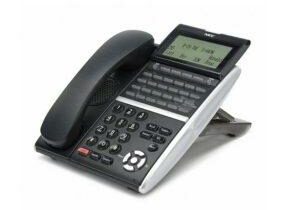
We’re living in a connected world that relies on network connectivity to communicate and function efficiently. With this dependency comes an increased vulnerability to cyber threats, and with October being Cybersecurity Month it’s the perfect time to explore the impact of telecommunications cybersecurity. We’ll walk you through some of our actionable tips to keep your business safe from future threats.
The Impact of Telecommunications Cybersecurity on Business
Let’s dive into some of the significant ways your business could be impacted by cyber-criminals.
Financial Loss and Reputational Damage: Telecommunications breaches can lead to substantial financial losses due to theft, fraud, or the cost of recovering from an attack. Moreover, a breach can severely damage a company’s reputation, eroding trust among customers and partners.
Operational Disruption: A cyberattack on your telecommunications infrastructure can cripple your day-to-day operations. Downtime means lost productivity, missed deadlines, and potentially dissatisfied customers.
Data Breaches and Intellectual Property Theft: A breach in your telecommunications security can lead to unauthorized access to sensitive information, including customer data and proprietary intellectual property. This can have far-reaching consequences, including legal liabilities and loss of competitive advantage.
Tips to Prevent Criminal Activity
1. Implement Strong Access Controls
When using your internet-based phone system, you should ensure that only authorized personnel have access to the online portal. Even if you work in an office with a few people, keep the login information with one person and only allow this designated individual to make changes within the account. The less hands in the pot, the better protected your business will be.
2. Complete Security Audits
Be proactive! One of the simplest ways to improve telecommunications cybersecurity is to ensure your portal password information is regularly updated. Use passwords that won’t be easily guessed by using symbols, numbers, and capitalized letters.
Even if your business is not using our CloudWorx platform or another VoIP phone system, you should update your phone and voicemail passwords.
If you have employees who have left your company, remove their phone information and access immediately to avoid potential breaches of information or telephone misuse. Report any suspicious activity to your IT department or to our Rhode Island Telephone support staff.
3. Make Software Updates
If you’re our CloudWorx customer, be assured that we make regular updates to the platform to ensure the latest in security features.
For customers not using a VoIP product, you should be aware of new software releases for your phone system that often include security updates to help protect you.
If you’re using an old business phone system (Toshiba, Lucent, Nortel, Delta, Vodavi… just to name a few) you are extremely vulnerable to a security risk. These phone systems are no longer supported with regular software updates, which means even if the phone is working effectively, it is not secure! You should reach out to our support team to determine the best option for your business.
4. Prevent Spoofing
Spoofing is another way your business communication can be impacted by fraudulent activity. Scammers often steal phone numbers from reputable businesses and use them to make fraudulent calls under your business name to collect funds or information from unknowing victims.
Spoofing can result in your business phone number being blocked or marked as spam in the future and can damage your reputation. This is a serious threat and there are steps you can take to prevent this from happening to your business.
5. Improve Customer Knowledge
If your business provides or acquires sensitive information from customers, you should remind your customer base that information should only be shared on approved secure networks.
Sensitive information should never be left on a voicemail; this includes health information, credit card numbers, even addresses or passwords. Many businesses have regulations regarding the distribution of this type of information and you should be reminding your customers of proper procedures.
For customers wanting a secure process for collecting or distributing sensitive information, please contact us about our e-fax solution.
Securing Your Future
Telecommunications cybersecurity is not just a concern for IT departments; it’s a critical aspect of overall business security. The impact of a breach can be far-reaching, affecting not only finances but also reputation and operations. By implementing robust security measures and cultivating a culture of awareness, businesses can significantly reduce their vulnerability to criminal activities in the telecommunications realm. Stay vigilant, stay secure and reach out to our Rhode Island Telephone support team for telecommunication cybersecurity support.




